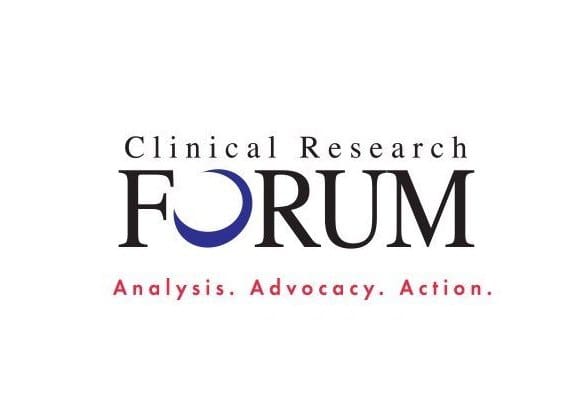
WASHINGTON–(BUSINESS WIRE)–Unless urgent action is taken, women will continue to drop out of academic research at an alarming rate due to pandemic-related barriers, according to a paper published in the journal Nature Medicine. The paper, authored by members of the Clinical Research Forum provides a framework for action, based on current research and data to stem the tide of women leaving the biomedical workforce.
The representation of women in the higher ranks of academia has not advanced in the past 35 years and the disproportionate pressures the pandemic placed on women has set progress back even further. This is particularly the case with junior female faculty and researchers with children. Research shows in addition to being paid less than men in comparable positions, receiving lower startup funds for laboratory research, and taking longer to be promoted – women are now at greater risk of not being able to meet expectations for tenure or promotion.
“In the wake of the COVID-19 pandemic, women in academia have fallen behind in terms of publications and the volume of grant funding received, which puts them at risk of dropping out of the research workforce altogether,” explained lead author, Pamela B. Davis, MD, PhD, Professor of General Medical Sciences at Case Western Reserve University School of Medicine and its former dean, as well as Member of the Board of Directors for the Clinical Research Forum. “The paper provides a framework for action, based on current research and data, with recommendations for institutions such as universities and hospitals as well as foundations, professional societies and funders/investors. These action items should immediately be implemented to help support women and ensure they not only remain in the workforce, but also have an equitable pathway for success.”
For example, institutions can provide short-term, flexible research support of $50,000–75,000 per year for junior faculty heavily impacted by caregiving responsibilities; provide benefits for support of childcare, such as institutional facilities or tax-exempt accounts to support childcare; and create the expectation that establishing gender equity is a shared responsibility and incorporate expectations into bonuses and merit raises of institutional leaders. Meanwhile, stakeholders such as foundations, government funders and professional organizations can encourage the expansion of federal programs that support childcare for promising rising investigators; advocate for the societal concept that childcare and eldercare constitute valuable national infrastructure; and advocate for professional organizations to celebrate and publicize effective programs that address gender equity and accommodate caregiving responsibility.
“The data show that the system has not supported women adequately and has especially not succeeded in fostering women leadership and their career progression,” said co-author, Arthur H. Rubenstein, MBBCH, Professor of Medicine, Raymond and Ruth Perelman School of Medicine, University of Pennsylvania. “The men in leadership positions need to embrace the view that academic science and medicine is enhanced by gender equity and diversity—particularly since the young students are 50/50 men and women. We must commit ourselves to work together as colleagues to implement the changes. The successful future of medicine will be positively influenced by what we do today.”
Co-author Anne B. Curtis MD, Charles and Mary Bauer Professor & Chair and SUNY Distinguished Professor, Department of Medicine, Jacobs School of Medicine & Biomedical Sciences, University of Buffalo, said, “The research confirms that women are shouldering most of the burden brought to society by the pandemic. The evidence shows the support needed does not have to be onerous. For example, there are very few institutions that provide onsite childcare or access to adequate childcare. If this is addressed, it would help women researchers, particularly those with younger children, know they won’t be left alone if things were to fall apart again.”
The authors of the paper are members of the Clinical Research Forum’s Academic Advancement Committee, which includes Pamela B. Davis, Emma A. Meagher, Claire Pomeroy, William L. Lowe Jr, Arthur H. Rubenstein, Joy Y. Wu, Anne B. Curtis and Rebecca D. Jackson. The CR Forum is a non-profit membership association of top clinical research experts and thought leaders from the nation’s leading academic health centers. Since 1996, the Clinical Research Forum has enabled the sharing of best practices in clinical research, informed meaningful policy dialogues and increasingly played a national advocacy role in support of clinical research.
About Clinical Research Forum
The mission of the Clinical Research Forum (CR Forum) is to provide leadership to the national and clinical translational research enterprise and promote understanding and support for clinical research and its impact on health and healthcare. For more information, visit www.clinicalresearchforum.org.
